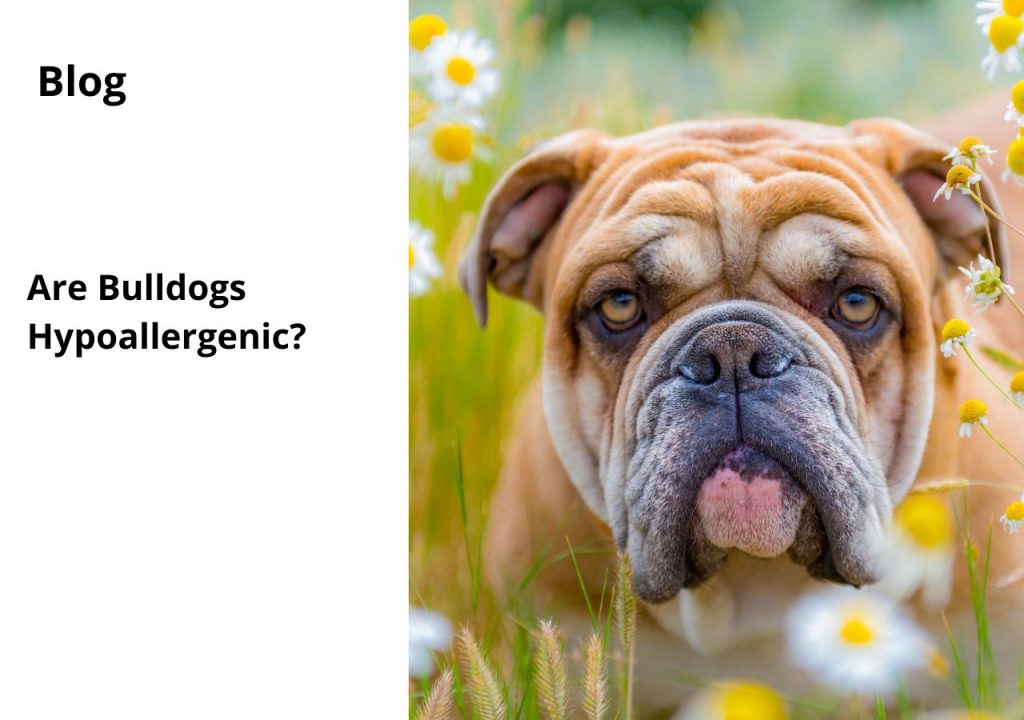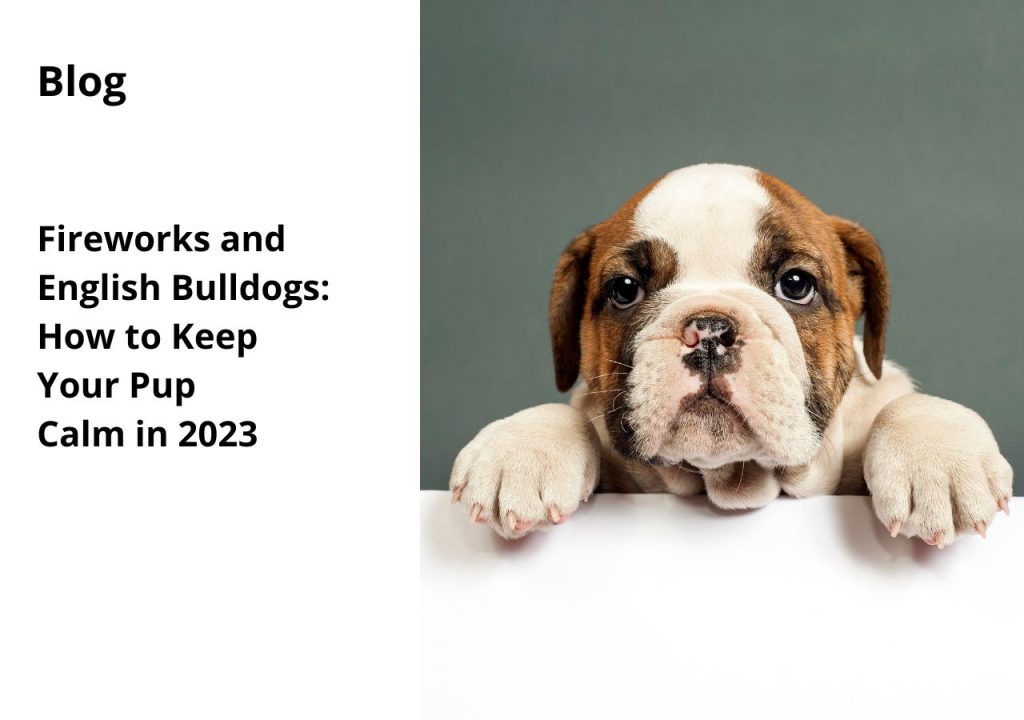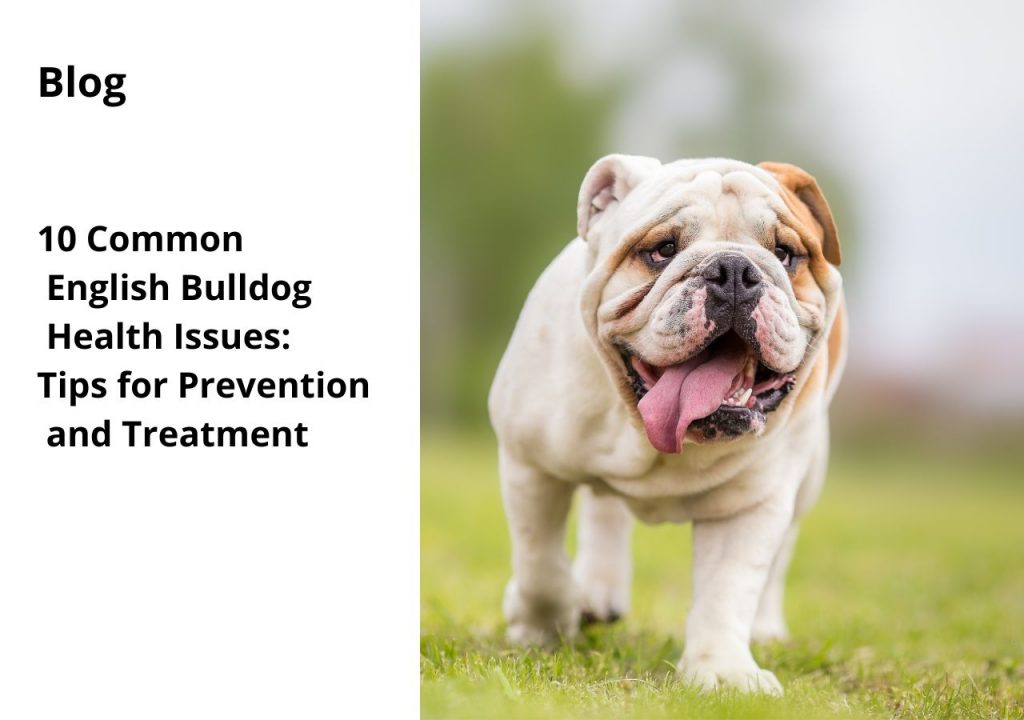When it comes to choosing a dog, many people are concerned about potential allergic reactions, especially if they or a family member suffer from allergies. Bulldogs, with their adorable wrinkly faces and loyal personalities, are a popular breed, but the question remains: are Bulldogs hypoallergenic? In this text, we’ll explore this topic in-depth.
What does hypoallergenic mean?
Before we dive into whether Bulldogs are hypoallergenic or not, let’s define what this term means. Hypoallergenic refers to a substance or material that is less likely to cause an allergic reaction. In the context of dogs, a hypoallergenic breed is one that produces fewer allergens, which can potentially trigger allergic reactions.
Are English Bulldogs hypoallergenic?
So, are Bulldogs hypoallergenic? Unfortunately, the answer is no. Bulldogs are not a hypoallergenic breed although they don’t shed much. They produce dander, which is a common allergen, as well as saliva, which can also cause allergic reactions in some people.
If you’ve ever been around a Bulldog, you know they are known for their slobbering and snoring. We can even say that they adore to spend most of their time snoozing and sleeping in their comfy doggy beds! That is the place where you will find most of the hair, drooling marks and allergens! While these traits may be endearing to some, they can also produce more saliva and dander, both of which can trigger allergies.

Why do Bulldogs produce allergens?
All dogs produce allergens, but some breeds are less likely to cause allergic reactions. Bulldogs, unfortunately, are not one of those breeds. Their skin folds and wrinkles can trap moisture, making them more prone to skin infections and other issues that can exacerbate allergy symptoms.
Are bulldogs OK for people with allergies?
As mentioned in the post, Bulldogs are not hypoallergenic, and they can produce dander and saliva, which are common allergens. If you or someone in your family has allergies, Bulldogs may not be the best choice for a pet.
However, every person’s allergies are different, and some people may be less sensitive to certain breeds than others. It’s always a good idea to spend some time with a particular breed to see if it triggers your allergies before committing to a new pet. Additionally, there are several hypoallergenic dog breeds available that may be a better fit for those with allergies.
What Actually Causes Animal Allergies?
Animal allergies are caused by a reaction to proteins found in an animal’s dander, saliva, or urine. Dander, which is made up of tiny flakes of skin, can be especially problematic as it can become airborne and spread easily throughout a home.
When someone with allergies comes into contact with these proteins, their immune system may react by producing histamines, which can cause symptoms such as itching, sneezing, and congestion. Different people may be more or less sensitive to these allergens, and some people may develop allergies to animals they previously had no reaction to.
It’s important to note that animal allergies can be managed through a combination of environmental controls, medication, and immunotherapy (allergy shots), but it’s best to consult with a medical professional to determine the best course of action for individual cases.
What are some hypoallergenic dog breeds?
If you or a family member suffers from allergies and are looking for a hypoallergenic dog breed, there are several options to consider. Here are a few:
- Poodle
- Bichon Frise
- Portuguese Water Dog
- Schnauzer
- Maltese
- Conclusion
In conclusion, Bulldogs are not hypoallergenic. While they may be a wonderful and loyal companion, they are not a good choice for someone with allergies. It’s important to consider all factors when choosing a dog, including temperament, energy level, and, in the case of allergies, hypoallergenic properties.



